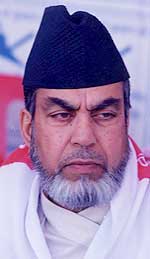 Those who have studied Nepali political history understood long ago that politics flows upstream. This is nothing new. These are challenges that come with the transformation of society and evolution of a political system. A lack of leadership and our weak comprehension of political history kept us from recognising changing circumstances, which is why we find ourselves misgoverned and directionless. If we don't bring the situation under control, things will get worse.
Those who have studied Nepali political history understood long ago that politics flows upstream. This is nothing new. These are challenges that come with the transformation of society and evolution of a political system. A lack of leadership and our weak comprehension of political history kept us from recognising changing circumstances, which is why we find ourselves misgoverned and directionless. If we don't bring the situation under control, things will get worse. Foreign powers are playing an active role because of our weakness. Their interference in small poor countries isn't novel. Our inefficiency makes it easier for them to meddle in our affairs. The nation must reach some kind of national consensus. The monarchy is the only institution in Nepal's political spectrum that has the capability of giving the country's history and political process a direction. The time has come for it to play a decisive role. All eyes are on the king. The political parties, foreigners and even the Maoist rebels, have accepted the stature of the king. He is in a position to make important decisions now.
There are only two powers in the country: one supports the constitution and the other does not. The king is for the constitution. The parliamentary parties are also committed to the constitution. Unfortunately, there is a crisis of confidence among the constitutional forces, and the anti-constitution bloc is taking advantage of the situation. This is a misunderstanding that has arisen from different concepts of democracy. Nepal cannot blindly follow foreign principles that say the king should stay away from politics, and only political parties should be responsible for the political processes in the kingdom.
Our country has a different historical and social setting. The king represents a political force and a history. The existence of the monarchy is knitted into the very fabric of Nepal. Everyone should reaffirm faith in this institution and get on with nation-building. Why isn't this happening?
On one hand the political and the constitutional forces have not been able to reach an agreement. On the other, we cannot transform society if we exclude the historical unifier of Nepali society. This is not to say that we must revive the monarchy but we should at least trust it. The political upheaval of 1960 was due to differing views between King Mahendra and BP Koirala. In essence, their rift still divides the country today. But we know that without nationalism, democracy has no value. On the other hand, the country can't be strong without democracy. We need to find an inclusive mantra that combines nationality and democracy.
The fate of the nation is in the balance. And as far as the Maoists are concerned, if they are nationalists and value sovereignty, they should understand they are the reason external threats are increasing. It is up to them to negotiate with the constitutional forces so disaster doesn't befall Nepal.


